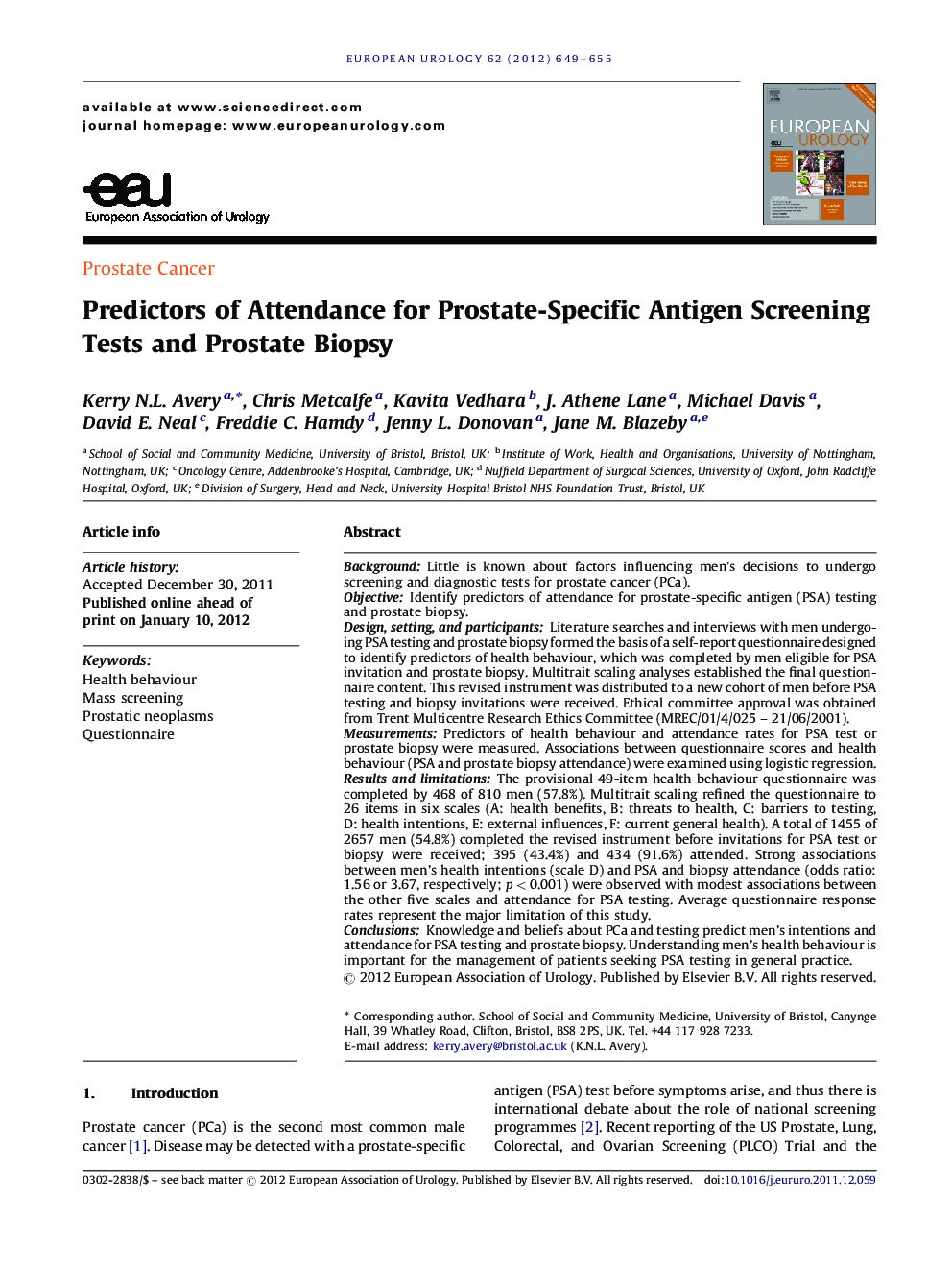| Article ID | Journal | Published Year | Pages | File Type |
|---|---|---|---|---|
| 3924007 | European Urology | 2012 | 7 Pages |
BackgroundLittle is known about factors influencing men's decisions to undergo screening and diagnostic tests for prostate cancer (PCa).ObjectiveIdentify predictors of attendance for prostate-specific antigen (PSA) testing and prostate biopsy.Design, setting, and participantsLiterature searches and interviews with men undergoing PSA testing and prostate biopsy formed the basis of a self-report questionnaire designed to identify predictors of health behaviour, which was completed by men eligible for PSA invitation and prostate biopsy. Multitrait scaling analyses established the final questionnaire content. This revised instrument was distributed to a new cohort of men before PSA testing and biopsy invitations were received. Ethical committee approval was obtained from Trent Multicentre Research Ethics Committee (MREC/01/4/025 – 21/06/2001).MeasurementsPredictors of health behaviour and attendance rates for PSA test or prostate biopsy were measured. Associations between questionnaire scores and health behaviour (PSA and prostate biopsy attendance) were examined using logistic regression.Results and limitationsThe provisional 49-item health behaviour questionnaire was completed by 468 of 810 men (57.8%). Multitrait scaling refined the questionnaire to 26 items in six scales (A: health benefits, B: threats to health, C: barriers to testing, D: health intentions, E: external influences, F: current general health). A total of 1455 of 2657 men (54.8%) completed the revised instrument before invitations for PSA test or biopsy were received; 395 (43.4%) and 434 (91.6%) attended. Strong associations between men's health intentions (scale D) and PSA and biopsy attendance (odds ratio: 1.56 or 3.67, respectively; p < 0.001) were observed with modest associations between the other five scales and attendance for PSA testing. Average questionnaire response rates represent the major limitation of this study.ConclusionsKnowledge and beliefs about PCa and testing predict men's intentions and attendance for PSA testing and prostate biopsy. Understanding men's health behaviour is important for the management of patients seeking PSA testing in general practice.
